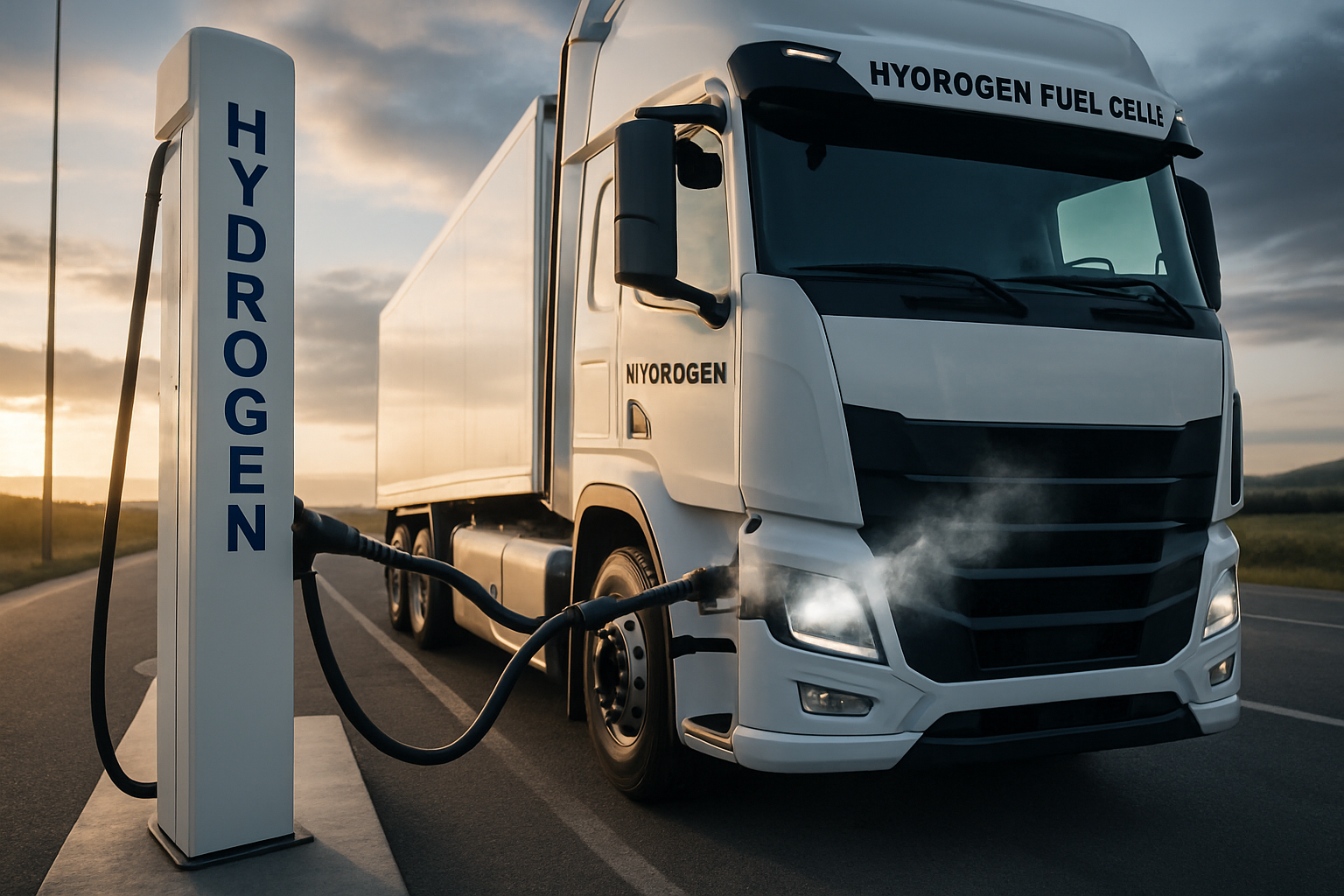Hydrogen Fuel Cells: The Quiet Revolution in Trucking
A gentle hum replaces the familiar diesel rumble as a sleek semi-truck glides down the highway. No exhaust fumes trail behind, only water vapor dissipating in the air. This isn't science fiction – it's the promise of hydrogen fuel cell technology in long-haul trucking. As the automotive world buzzes with talk of electrification, a quiet revolution is taking place in the commercial transport sector, one that could reshape the future of freight.

Range and Refueling: Overcoming the Electric Hurdle
One of the most significant advantages of hydrogen fuel cells in trucking is their ability to match or exceed the range of traditional diesel engines. While battery-electric vehicles struggle with long-distance hauling due to weight and charging time constraints, hydrogen-powered trucks can cover vast distances with minimal downtime. Refueling a hydrogen truck takes minutes, comparable to filling up with diesel, allowing for quick turnarounds and maximized road time. This efficiency is crucial in an industry where time literally equals money.
Infrastructure Challenges and Solutions
The adoption of hydrogen fuel cell technology in trucking faces a chicken-and-egg dilemma: fleets hesitate to invest without adequate fueling infrastructure, while fuel providers are reluctant to build stations without guaranteed demand. However, strategic partnerships between truck manufacturers, energy companies, and governments are beginning to break this impasse. Hydrogen corridors are emerging, connecting major transport hubs and allowing for the gradual expansion of fuel cell truck operations. As these networks grow, so does the viability of hydrogen as a widespread transportation fuel.
Environmental Impact and Sustainability
The environmental benefits of hydrogen fuel cells are compelling. When powered by green hydrogen – produced using renewable energy sources – these trucks offer a truly zero-emission solution for freight transport. This potential for carbon neutrality is attracting attention from companies looking to reduce their environmental footprint and meet increasingly stringent emissions regulations. However, the sustainability of hydrogen as a fuel source depends heavily on its production methods. The industry is rapidly developing more efficient and cleaner ways to produce hydrogen, including innovative techniques like solar-powered water splitting and biomass gasification.
Economic Considerations and Total Cost of Ownership
While the initial cost of hydrogen fuel cell trucks remains higher than their diesel counterparts, the economics are shifting. As production scales up and technology improves, prices are expected to drop significantly. Moreover, when considering the total cost of ownership over a truck’s lifetime, hydrogen begins to look increasingly competitive. Lower maintenance requirements, potential fuel cost savings, and longer vehicle lifespans all contribute to a compelling economic argument for hydrogen in commercial transport.
The Road Ahead: Challenges and Opportunities
As with any emerging technology, challenges remain. Safety concerns around hydrogen storage and transport need to be addressed through robust engineering and safety protocols. The efficiency of hydrogen production and distribution must improve to make it cost-competitive with traditional fuels. And while the technology is proven, long-term durability in real-world conditions is still being established.
Yet, the potential benefits are immense. Beyond environmental gains, hydrogen fuel cells offer the promise of energy independence, reduced noise pollution in urban areas, and new job creation in a growing green economy. As the technology matures and infrastructure expands, we may be witnessing the early stages of a fundamental shift in how goods are transported across the globe.
The quiet revolution of hydrogen fuel cells in trucking is gaining momentum. As fleets begin to adopt this technology and infrastructure continues to develop, the familiar sight of trucks on our highways may soon be accompanied by a new sound – or rather, the lack of one. The future of freight could be clean, quiet, and powered by the most abundant element in the universe.






